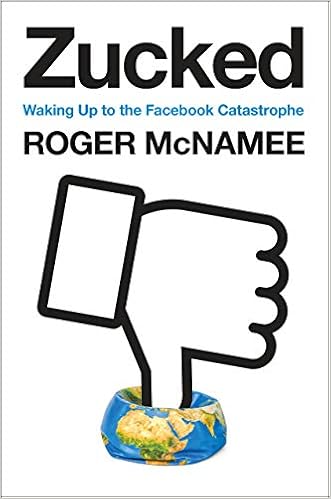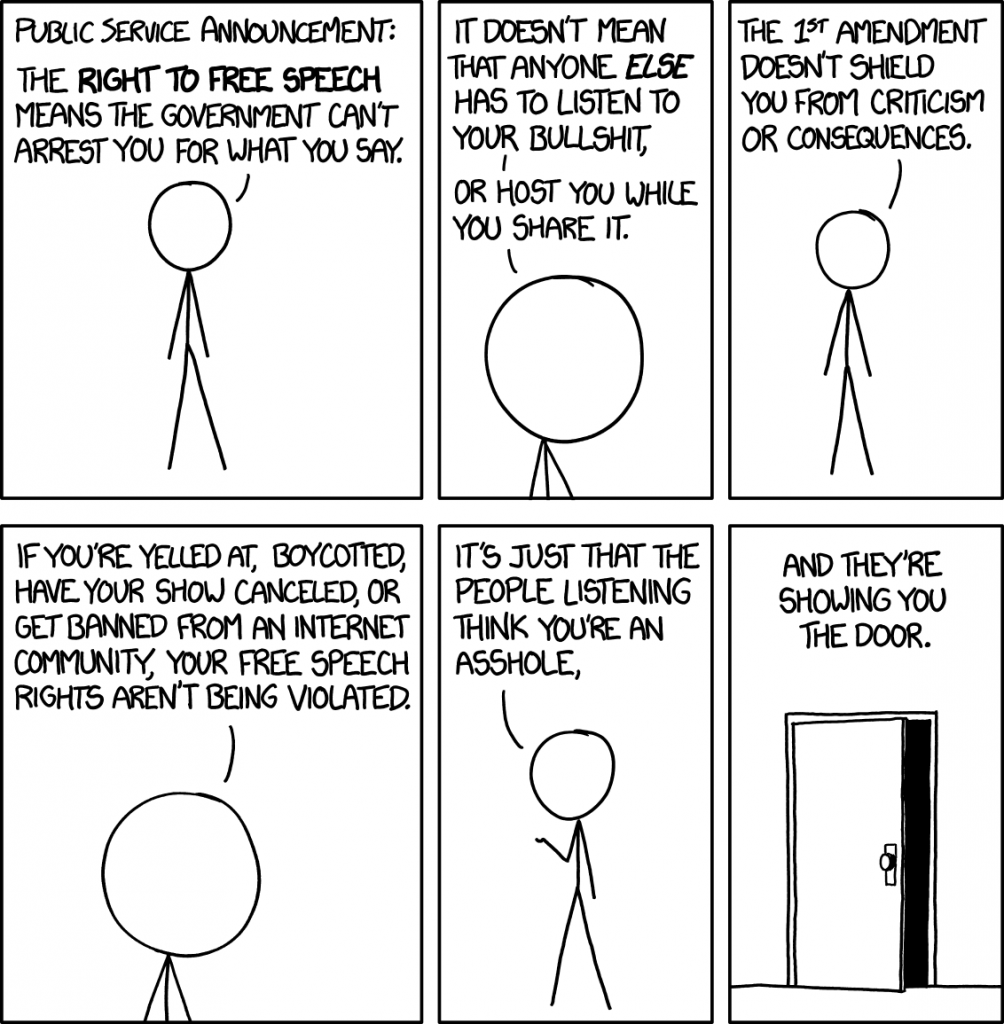Excerpts from Zucked: Waking Up to the Facebook Catastrophe by Roger McNamee.

Imagine a stew of unregulated capitalism, addictive technology, and authoritarian values, combined with Silicon Valley’s relentlessness and hubris, unleashed on billions of unsuspecting users.
The most likely case is that the technology and business model of Facebook and others will continue to undermine democracy, public health, privacy, and innovation until a countervailing power, in the form of government intervention or user protest, forces change.
Surveillance, the sharing of user data, and behavioral modification are the foundation of Facebook’s success.
When users are riled up, they consume and share more content. Dispassionate users have relatively little value to Facebook.
Facebook is the fourth most valuable company in America, despite being only fifteen years old, and its value stems from its mastery of surveillance and behavioral modification.
It turns out that connecting 2.2 billion people on a single network does not naturally produce happiness for all. It puts pressure on users, first to present a desirable image, then to command attention in the form of Likes or shares from others. In such an environment, the loudest voices dominate, which can be intimidating. As a result, we follow the human instinct to organize ourselves into clusters or tribes.
The competition for attention across the media and technology spectrum rewards the worst social behavior. Extreme views attract more attention, so platforms recommend them.
Research suggests that people who accept one conspiracy theory have a high likelihood of accepting a second one.
Belonging is stronger than facts.
The Russians might have invented a new kind of warfare, one perfectly suited to a fading economic power looking to regain superpower status.
Technology tends to reflect the values of the people who create them.
When a company grows from nothing to 2.2 billion active users and forty billion dollars in revenues in only fourteen years, you can be sure of three things: First, the original idea was brilliant. Second, execution of the business plan had to be nearly flawless. And third, at some point along the way, the people who manage the company will lose perspective. If everything your company touches turns into gold for years on end, your executives will start to believe the good things people say about them. They will view their mission as exalted. They will reject criticism. They will ask, “If the critics are so smart, why aren’t they so successful and rich as we are?”
On Facebook, information and disinformation look the same; the only difference is that disinformation generates more revenue, so it gets much better treatment.
Huge amounts of data are available. Campaigns can buy a list of two hundred million voting-age Americans with fifteen hundred data points per person from a legitimate data broker for seventy-five thousand dollars.
Where Orwell worried about the burning of books, Huxley argued that the greater risk would be citizen no longer wanting to read.
Facebook is a threat to democracy.



 “Minimalism is the art of knowing how much is just enough. Digital minimalism applies this idea to our personal technology. It’s the key to living a focused life in an increasingly noisy world.” (
“Minimalism is the art of knowing how much is just enough. Digital minimalism applies this idea to our personal technology. It’s the key to living a focused life in an increasingly noisy world.” (
 Excerpts from
Excerpts from